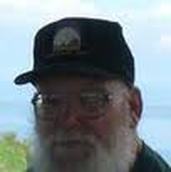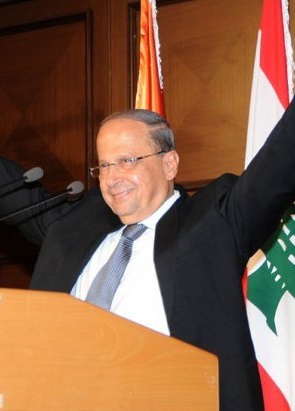 Michel Aoun Lebanese President Michel Aoun Lebanese President Michel Aoun, the former commander of the Lebanese army, has been elected president. Lebanon had been unable to elect a president for more than two years now. There were 45 sessions that failed to elect a new president as infighting led to no quorum. While Aoun, who is 81, won the support of 83 MPs he needed only 65 to win the presidency. There are 128 members in the legislature. Fireworks echoed across Beirut on the announcement that Aoun had won. Lebanon has a power-sharing agreement in which the president is required to be a Maronite Christian as is Auon. Saad Hariri, the former prime minister, who also heads the largest bloc in parliament said earlier this month that he would support Aoun. This helped Aoun win. Hariri's support for Aoun is a big setback for Saudi Arabia who had backed Hariri and his allies in years of struggle against Hezbollah. Hezbollah supported Aoun. Many see the decision as a sign of diminishing influence of Saudi Arabia in Lebanon and an increase in the influence of Iran and Hezbollah. Y-net complains that the Aoun presidency is bad for Israel: "As far as Israel is concerned, it will mean quite the headache: Iran will expand its foothold in Lebanon, no one will bother to demand that Hezbollah disarm and hand its weapons over to the state, and the the Saudis will be furious, as Israel’s alert level concerning Lebanon will move one step up." Hariri has had his own troubles with Saudi Arabia due to financial difficulties with his Saudi-based construction firm, Saudi Oger. This has caused difficulties in financing his political network in Saudi Arabia. Aoun is to meet with Lebanese MPs later this week and designate the member with greatest support among MP's as the Prime Minister. This is expected to be Hariri. Security had been tightened during the vote with helicopters flying overhead and cars were forbidden from entering much of central Beirut. There were metal detectors in streets near the parliament buildings. Aoun will be returning to the presidential palace exactly 26 years after he was forced out as army commander by forces loyal to a rival commander.
0 Comments
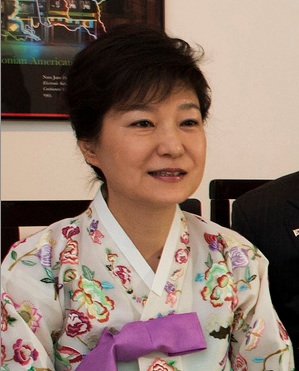 Park Geun-hye President of South Korea Park Geun-hye President of South Korea Top presidential aides to South Korea's president Park Geunh-hye have resigned, including her chief of staff according to the presidential office. The resignations come just as Park is attempting to fend off allegations of influence peddling that involve her old friend Choi Soon-Sil. Park returned home from Germany to face allegations that she allowed Choi to use their friendship to improperly influence her and for personal benefit. Jeong Yeon-guk, spokesperson for the presidential office announced three aides had stepped down. Park has acknowledged that she provided Choi with drafts of her speeches for editing. However, there is also speculation that Choi was involved in decisions on personnel and also used ties with Park to appropriate funds for non-profit organizations. Harry Fawcett of Al Jazeera reported from Seoul about the aides who resigned:".. "that these appointments may have been incluenced by Choi, and one of them is under investigation for being the means in conveying important government documents - with national security implications - to this person who has no government position or security clearance. That is the essence of why there is so much anger and disbelief, that someone totally unelected can have so much influence over the state of affairs." Thousands of South Koreans took to the streets of Seoul on Saturday evening demanding that Park step down. Many held candles, and there were signs saying "Who's the real president?" Police estimated the crowd, who held a candlelight vigil by City Hall was about 9.000 people. There are more demonstrations planned according to Fawcett. At the protest, Jae-myung Lee of the opposition Minjoo Party who is also mayor of the city of Seongnam said that Park had lost her authority as president and had showed she did not have the qualities necessary to rule. Even Park's ruling party has considered calling for a national unity government that would in effect sideline Park. Fawcett claimed that just getting rid of a few aides would not quell the protests. On Saturday, prosecutors had widened their investigation by searching homes of presidential officials who they suspect had interacted with Choi providing him with office files from the presidential office. President Park made a public apology on TV back on October 25th:In it, Park admitted to sharing state documents with Choi Soon-sil, who gave "her personal opinion" on Park's speeches before the presidential election in 2012. Park also said Choi looked at "some documents" for a certain period of time after Park took office, but didn't specify what they were. "I am shocked and my heart is breaking for causing public concern," Park said in the live telecast. "I've done so (shared the documents) out of pure heart so that I could carefully review (the documents)".The apology appears to have only added fuel to the protests. 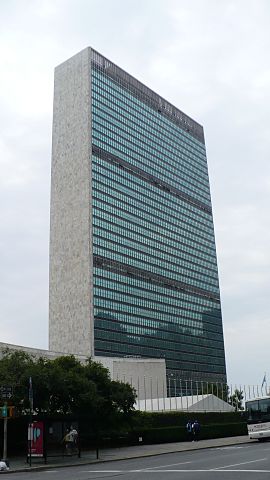 UN headquarters New York NY UN headquarters New York NY In the UN Disarmament and International Security committee, 123 countries voted in favor of a ban on nuclear weapons, 38 opposed the motion, and another 16 abstained. The complete resolution can be found here. A meeting is to be held at the UN in New York in March of 2017 to negotiate a legally binding instrument prohibiting nuclear weapons leading towards their total elimination. There was strong opposition from nuclear-armed countries and their supporters. Those supporters include Australia, Canada, and NATO countries in Europe. Sweden and Malta voted in favor of the resolution. Of nuclear nations, all voted No including Israel except for China which abstained and North Korea which voted yes. The role call of votes can be seen here. Most smaller countries voted for the resolution. Many enemies agreed in supporting the motion including Saudi Arabia and Iran. Many other Gulf States also supported the resolution. As mentioned earlier even North Korea was in support of the resolution. The Guardian reports incorrectly that it opposed the treaty. The motion will now go to a full vote in the General Assembly some time in December. Australia has been outspoken in support of the vote against the proposal even as the treaty is becoming more popular among many countries. Australia has pressed for a "building blocks" approach that involves engaging with nuclear powers to reduce the 15,000 global stock of nuclear weapons. Australia, as well as others, depend upon US nuclear power as a defense. Richard Sadleir, assistant secretary in the Australian Dept. of Foreign Affairs and Trade said:“We do not support a ban treaty. A ban treaty that does not include the nuclear weapons states, those states which possess nuclear weapons, and is disconnected from the rest of the security environment, would be counterproductive and not lead to reductions in nuclear arsenals." Professor Tilman Ruff of the International Campaign to Abolish Nuclear weapons called the vote a historic step ending two decades of paralysis on the issue of multilateral disarmament. Ruff said:"The numbers are especially encouraging given the ferocious pressure on countries to vote no by the nuclear-armed states, who see that this will fundamentally challenge their continued possession of nuclear weapons. The treaty will fill the legal gap by which the most destructive of all weapons – nuclear weapons – are the only weapon of mass destruction to not yet be outlawed by international treaty.”Ruff accused Australia of doing US dirty work. He found it inconceivable that Australia which has signed every treaty banning unacceptable weapons would not sign on to a ban on nuclear weapons. Critics argue that without the participation of states that actually have nuclear weapons the treaty would not just be useless but counterproductive. The response of ban supporters is that the treaty would create moral suasion such as has happened with the cluster and landmine conventions which many powerful countries reject. It also provides an international norm prohibiting nuclear weapons development, possession and use. Many non-nuclear states are simply fed up with the lack of action of nuclear powers on the issue.The nuclear states want to keep their weapons and many are spending huge sums modernising them rather than reducing their number. The nuclear states favor the non-proliferation treaty that keeps them in a monopoly position with respect to the weapons. An outright ban would negate that advantage. Yet that is the policy that more and more nations support. 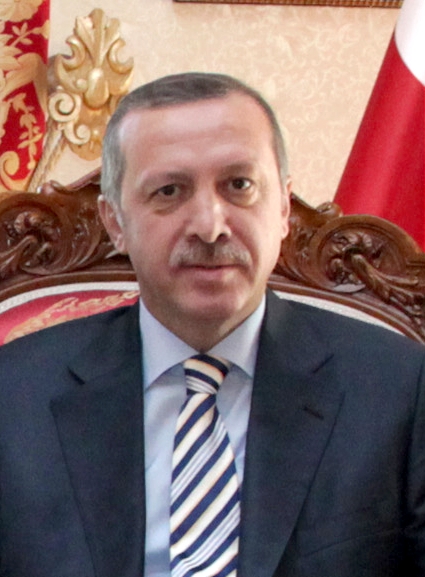 Turkish President Recep Erodgan Turkish President Recep Erodgan The Turkish military claimed that its planes had targeted Syrian Kurds in northwestern Syria according to the official news agency Anadolu. The jets hit 18 targets in a region north of the city of Aleppo. The agency quoted an army report claiming that between 160 and 200 fighters from the Kurdish YPG , the People's Protection Units, had been killed in raids that took place Wednesday night. However, a leader of Syrian-Kurdish fighters said that while jets and Turkish artillery were attacking that there were no more than 10 casualties. The monitoring group Syrian Observatory for Human Rights claimed that just 9 YPG fighters were confirmed dead and another 26 injured in a total of 20 raids.The Anadolu agency said that nine buildings including YPG headquarters, meeting places, shelters and weapons buildings were destroyed plus 4 vehicles. Al Jazeera was unable to obtain independent verification of the casualty figures. While the agency reported that Turkish-backed rebels had been attacked by the YPG, the Observatory had no record of any such incident, Another report by RT said that the Turkish military jusified the raids as a response to five shells that had been fired from the Kurdish-held region of Afrin. Although the shells did not cause casualties or damage, the resultant strikes were in line with Turkish rules of engagement. The attacks are bound to increase tension between the US and Turkey as the US considers the YPG a key player in the fight against the Islamic State (IS) in Syria. Turkey launched a ground operation against both the Islamic State in Syria and the YPG in August. It insists that the Kurds not advance west of the Euphrates river. Turkey considers the YPG be simply an extension of the Kurdistan Workers' Party (PKK) that it considers a terrorist group and which has carried out deadly attacks in Turkey during the last year. It remains to be seen what the US will say about these attacks.President Recep Erdogan said Wednesday that Turkey would go wherever terrorist organisations were and deal with them and not wait for them to come and attack Turkey. Turkey has been acting more aggressively beyond its borders of late. It has insisted that it should be part of the offensive against Mosul and will not withdraw its troops from Iraq as demanded by Baghdad. However, it has been excluded from the Mosul offensive. 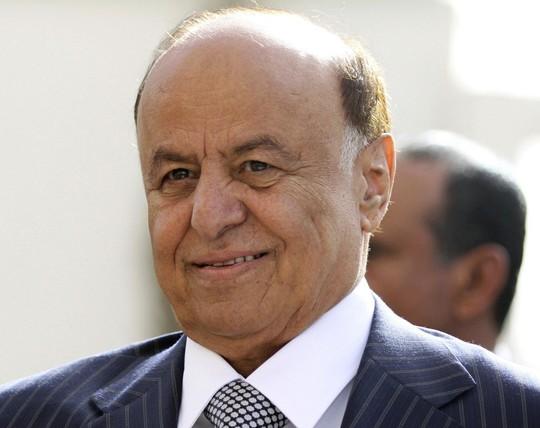 President Mansour Hadi of Yemen President Mansour Hadi of Yemen President Mansour Hadi of Yemen has agreed to a 72 hour ceasefire in the Yemen civil war. He also said the ceasefire could be extended under certain conditions. The announcement was made by Foreign Minister Abdel-Malek al-Mekhtafi on his official Facebook account:"The President agreed to a 72 hrs ceasefire to be extended if the other party adheres to it, activates the DCC (De-escalation and Coordination Committee) and lifts the siege of Taiz," The DCC is a UN-backed military commission that monitors ceasefires in Yemen. A start date for the truce has not been announced but Hadi is to meet with Ismail Cheikh Ahmed, the UN special envoy to Yemen, on Thursday to set a date. Hadi's government has been asking that there be humanitarian access to the city of Taiz. The rebel Houthis largely encircle the city with government forces having control of only one of four access routes. The Houthis took the capital, Sanaa, back in 2014 with the help of forces loyal to the former president Ali Abdullah Saleh. Although the Houthis have lost much of the south including the port of Aden, they hold most of the north and areas along the Red Sea coast. Previous ceasefires have failed. Saudi Foreign Minister al-Jubeir said the Saudis would accept the ceasefire if the Houthis agreed to it. So far there has been no response from the Houthis. Saudi-led airstrikes have been part of the campaign against the Houthis since March of last year. Several Gulf country allies have deployed troops to Yemen. The conflict has created a humanitarian disaster with an estimated 10,000 people having been killed, 3,800 of them being civilians according to UN estimates. The United States Britain, and the UN have urged both parties to declare a ceasefire. US Secretary of State, John Kerry, said in London Sunday: “This is the time to implement a ceasefire unconditionally and then move to the negotiating table. We cannot emphasize enough today the urgency of ending the violence in Yemen.” The Saudi-led coalition was recently found responsible for bombing a funeral that killed over a hundred people. At first, the Saudis denied making the strike but now are claiming it was based on false information. |
Like this writer's work please donate:
Ken Hanly
Ken is a retired philosophy professor living in the boondocks of Manitoba, Canada, with his Filipina wife. He enjoys reading the news and writing articles. Politically Ken is on the far left of the political spectrum on many issues.
Archives
November 2016
Categories
All
|
 RSS Feed
RSS Feed
